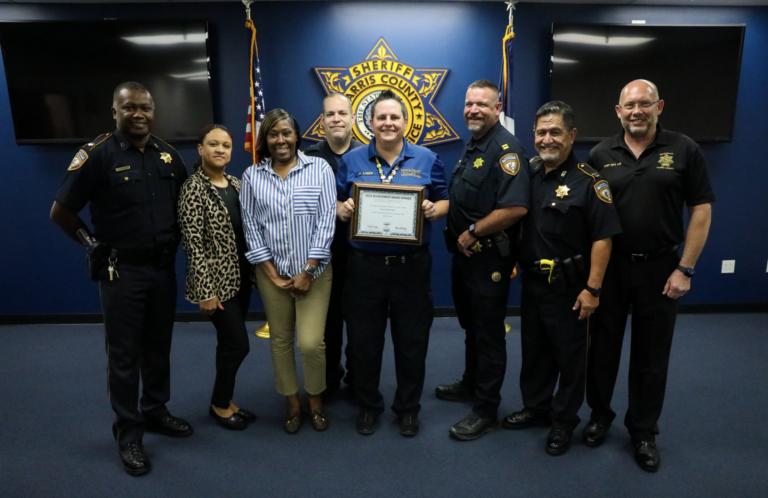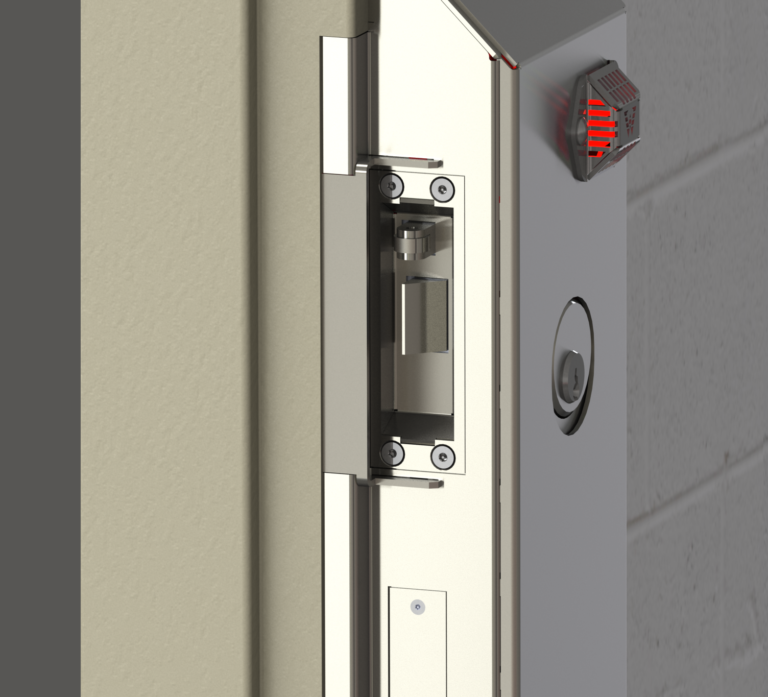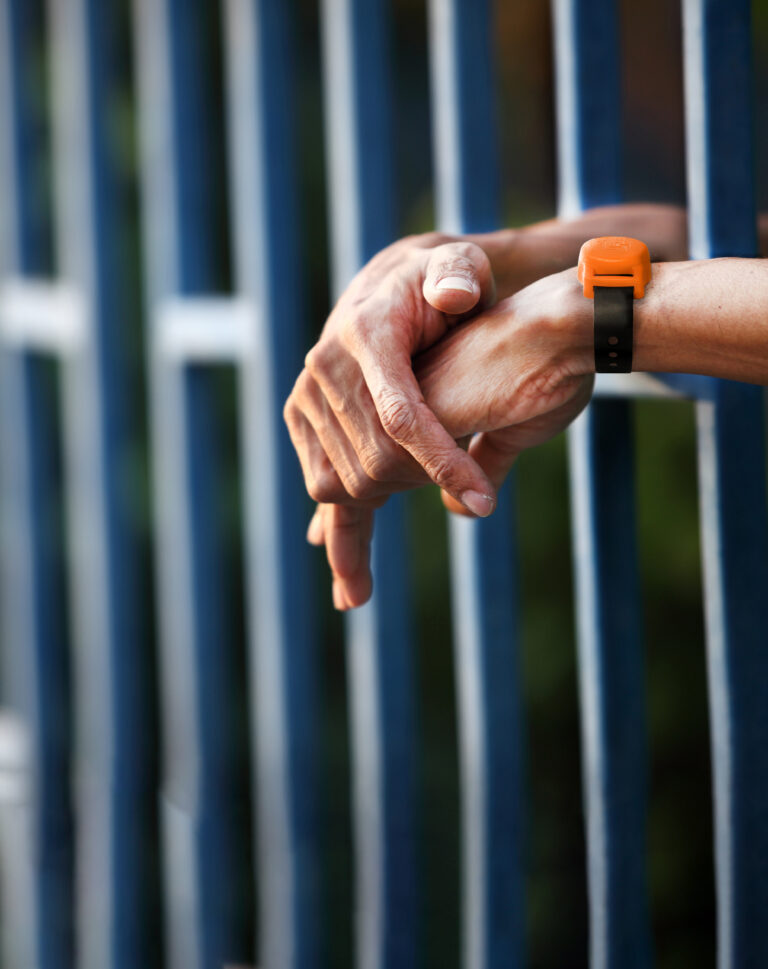DuPage County’s JUST Program Uses Activities, Therapy and Design Choices to Reduce Recidivism

By Kat Balster
In the heart of DuPage County’s Correctional Facility in Wheaton, Ill., an unassuming chessboard tells a powerful story. Embedded within a tamper-proof dayroom table provided by furniture manufacturer Cortech USA, the board is more than just a game—it’s a metaphor, a tool, and a small but intentional part of a larger mission to transform the trajectory of incarcerated people through the JUST program.
The Justice, Understanding, Service, and Teaching (JUST) program—revitalized under the leadership of executive director Michael Beary—is a comprehensive, trauma-informed rehabilitation initiative designed for inmates who are ready to make serious changes. But what sets it apart isn’t just the programming—it’s the environment itself. From custom murals to normative plastic furniture and strategically designed living quarters, JUST integrates elements that foster dignity, reflection and forward-thinking.
How the JUST Program at DuPage County Replaces Confinement with Purpose
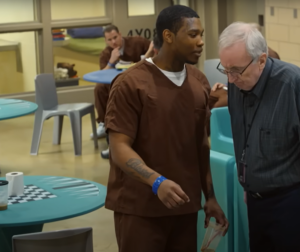
At its core, the JUST program is built on four pillars:
- addressing unresolved trauma
- reprogramming self-beliefs
- developing communication skills
- fostering healthy relationships
Beary, who began working with justice-involved people nearly two decades ago, brings a deeply personal, experiential approach to his work, especially with gang members and people with substance use disorders.
Program participants live together in specially designed pods that mimic a therapeutic community. Participants are selected based on strict criteria. For the gang-focused pod, men must be high-level members—often enforcers or leaders—who are disillusioned with the violence and looking for a way out. In the addiction recovery pod, participants typically have more than a decade of substance use and little to no history of successful treatment. All participants must agree to cover up visible symbols of street life, including gang tattoos and track marks, through a unique tattoo program also housed within the facility.
The physical space—far from the cold, institutional design of a traditional jail—features flexible seating, natural light and calming murals. Instead of the fixed steel tables that are typical in detention environments, the program pods feature Cortech furniture, which is known for its safety and durability in behavioral health settings. This shift alone has redefined how residents interact with one another and their surroundings.
Chess as a Tool for Building Strategic Thinking and Self-Control
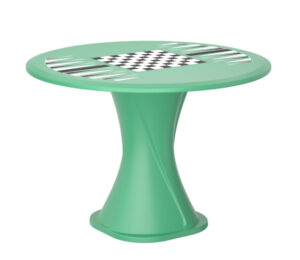
Beary requires every participant to learn chess, and the reason goes far beyond recreation.
“In chess, you must think several moves ahead,” he said. “You have to offer sacrifices now for future gains. That’s something many of these men have never been taught to do.”
For people who have spent their lives reacting to immediate threats or numbing pain with instant gratification, learning to play chess is an exercise in planning, patience and vision. It trains the brain to operate with a future mindset—a skill crucial for breaking cycles of violence and addiction.
The chessboard tables, custom-designed and integrated into the dayroom furniture, are a subtle yet powerful reinforcement of this concept. They remind residents daily that they are now part of a space built to support growth, not punishment.
Reentry Support Provides a Bridge from Incarceration to Community

JUST doesn’t end when the cell door opens. A robust reentry program led by a dedicated staff member helps participants secure housing, employment, and continued education or counseling. Many graduates continue to engage with the program via Zoom, sharing their stories with current participants as living proof that change is not only possible—it’s sustainable.
The program’s results speak volumes. Recidivism rates among graduates are significantly lower than national averages. Where gang-affiliated people typically reoffend at rates around 75%, JUST participants show rates under 15% two years post-release. For people with heroin addictions, the outcomes are similarly dramatic.
Growth and Vision Behind the JUST Program in DuPage County
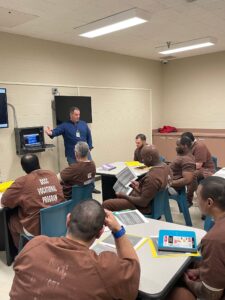
The JUST program was originally founded in 1985 by Sister Juanita Ujcik, who began with educational classes and grew it into a volunteer-led organization that provided a wide range of services. Today, under Beary’s leadership and with strong support from Sheriff James Mendrick, JUST has evolved into a pioneering model of rehabilitation.
Mendrick has made major investments in innovative services—from expanding vocational training to backing programs like JUST that prioritize rehabilitation over punishment. The sheriff provided a section of the fourth floor of the facility for JUST to operate its intensive programs, a move that sent a clear message: Transformation is a priority.
Ultimately, the success of JUST lies in its ability to humanize incarceration. By creating a space where healing can happen—through intentional design, meaningful programs, and strong community support—JUST offers a rare and powerful thing in the world of corrections: hope.
A chessboard in a jail might not seem revolutionary. But in the hands of Michael Beary and the JUST team, it’s a symbol of strategy, of future-thinking and of a second chance. And for many who’ve never had one, that can make all the difference.
More information can be found at JUST of DuPage County. The program was also featured in a documentary by VICE.




